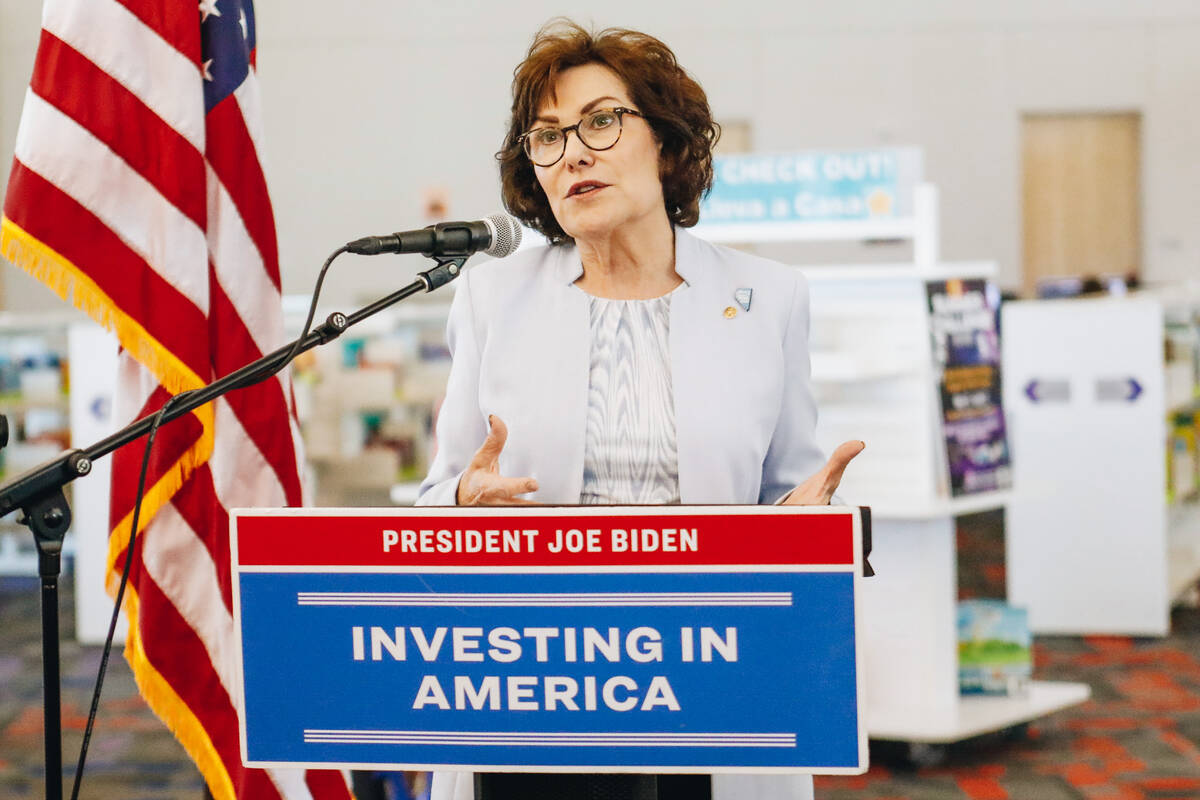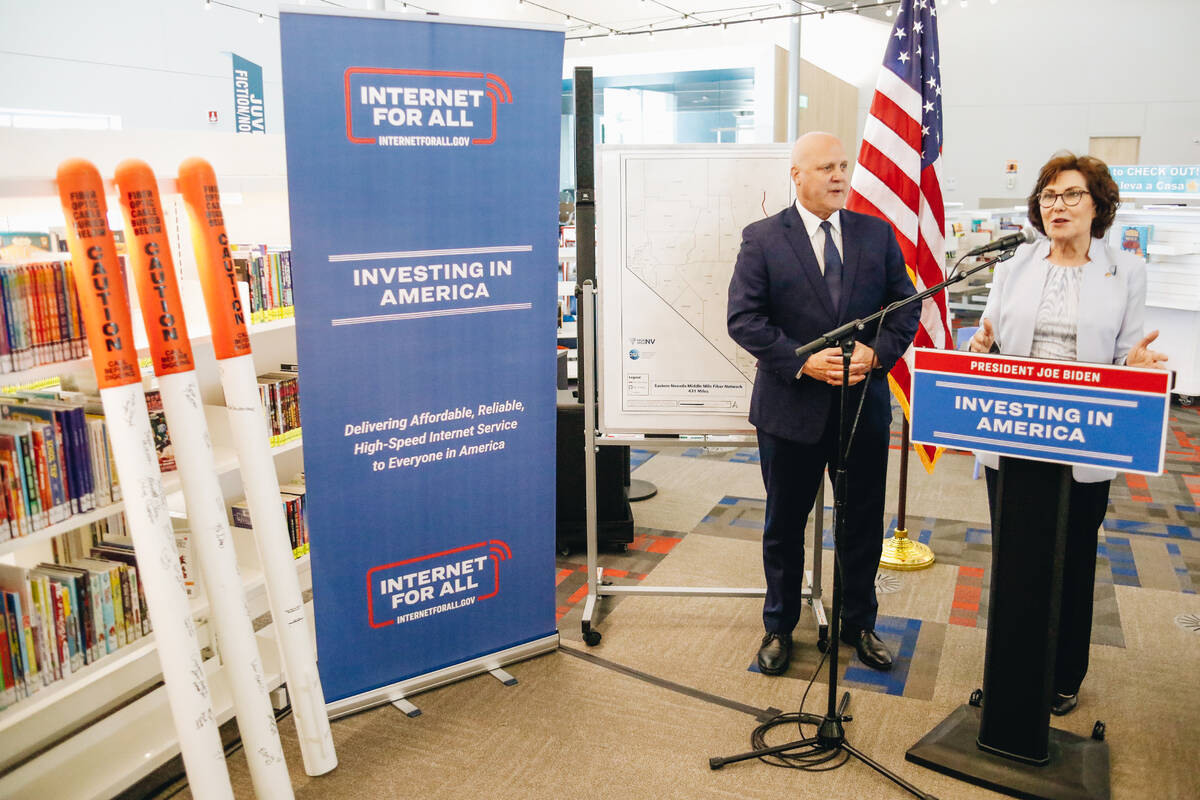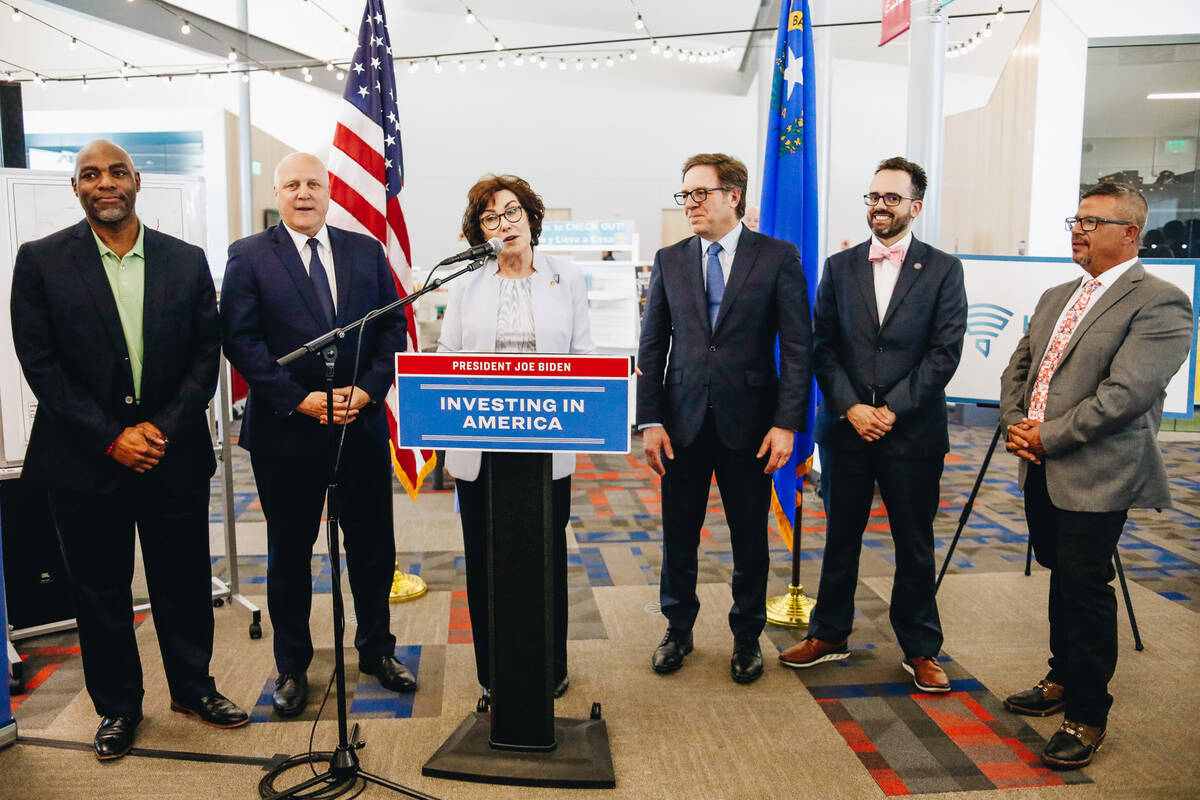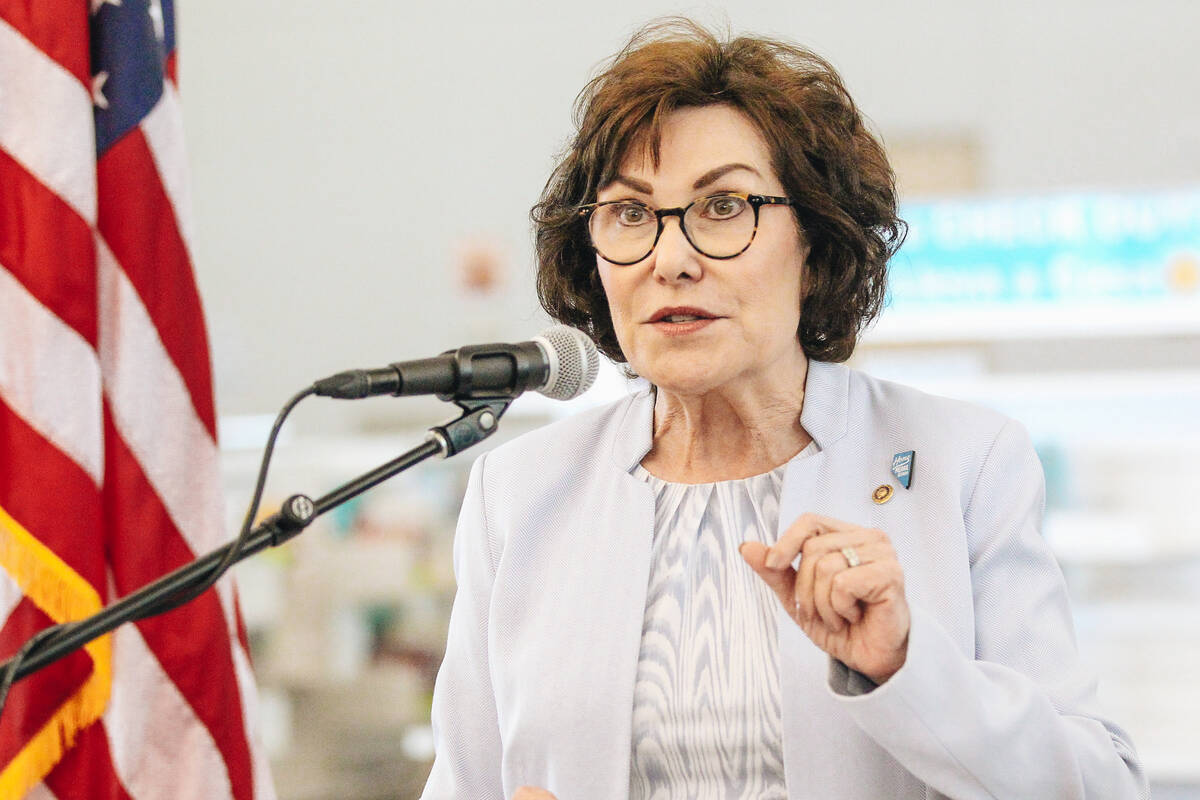Jacky Rosen hooks Nevada up with funds for internet
Nevadans will have more internet access soon, thanks to a bill authored by Sen. Jacky Rosen, D-Nev.
Rosen’s bill, which she called the Middle Mile Broadband Deployment Act, was incorporated into the bipartisan Infrastructure Act, which President Joe Biden signed in 2021. It supplies $1 billion nationally — $43.5 million in Nevada — to connect schools, libraries, community centers, and government offices to high-speed internet.
Those facilities can act as hubs to distribute high-speed internet access to homes.
“We’re going to find central places in these communities to put the infrastructure there, and then we’re going to fan out,” Rosen said at a Friday news conference.
According to Rosen’s office, the funding will be used to connect or improve internet service at 21,000 locations in Nevada.
Rosen announced the funding at a news conference Friday at the East Las Vegas Library, alongside Mitch Landrieu, the former mayor of New Orleans and the White House infrastructure coordinator; Alan Davidson, assistant secretary of commerce for communications and information; Brian Mitchell, director of the Nevada Office of Science, Innovation and Technology; and Alberto Gonzalez, vice president south for the Communications Workers of America Local 9413.
At the news conference, the group detailed the 431-mile fiber-optic cable route that will be built because of the funding. The cable will run from Las Vegas to Elko County and follow U.S. Highway 93, a stretch of Nevada that has almost no middle-mile infrastructure, according to Davidson.
“Thanks to this funding, and to the infrastructure bill more families will have access to the internet in ways they otherwise never could have had,” Rosen said at the news conference.
The funding announcement marks the first steps for this project. The design, engineering, permitting and construction of the 431-mile route still needs to happen. Mitchell estimates that it could take two to three years to get completed, depending on the permitting process.
Mitchell said he expects the project will have a “tremendous amount” of economic impact for towns in the eastern part of the state such as Ely, where there isn’t a solid access point for high-speed internet.
“Right next to Ely is Great Basin National Park … but there’s zero connectivity there,” Mitchell said. “People come, they’re traveling the country, they work from their RV, and they come to the park, and they want to play, but then they also want to work, but there’s no internet for them.”
Mitchell said that over a dozen private internet providers are interested in bringing their services to the eastern part of the state because of this cable route.
Rosen, who started her career as a computer programmer, noted in a release that “middle mile” connections form the backbone of the internet and are less well known than last mile connections to homes and businesses.
“Access to high-speed internet is absolutely essential in our daily lives, but unfortunately too many communities across our state lack basic internet services,” Rosen said in the release. “Thanks to my Middle Mile Broadband Development Act, access to the internet is becoming a reality for more hardworking Nevada families.”
It’s not Rosen’s first foray into internet access issues. In May, she got the Federal Communications Commission to update its broadband internet access map after she said it grossly underestimated access in rural Nevada, which could have cost the state funding to expand that service.
The new map reflected nearly 27,000 potential new internet service locations in the state, she said. Rosen also got $55 million for Nevada in the American Rescue Plan to connect about 44,000 homes to the internet in Nevada.
Rosen, first elected in 2018, is up for re-election next year. Her highest-profile Republican challenger is former Assemblyman Jim Marchant, who has alleged without evidence that the 2020 election was stolen. Marchant lost bids for Congress in 2020 and secretary of state in 2022.
This won’t be the only announcement about improving internet access. Davidson teased that within the next month more federal funding will be announced that will help build out internet infrastructure for the last mile.
Contact Steve Sebelius at SSebelius@reviewjournal.com or 702-383-0253. Follow @SteveSebelius on Twitter. Contact Sean Hemmersmeier at shemmersmeier@reviewjournal.com or on Twitter @seanhemmers34.





















